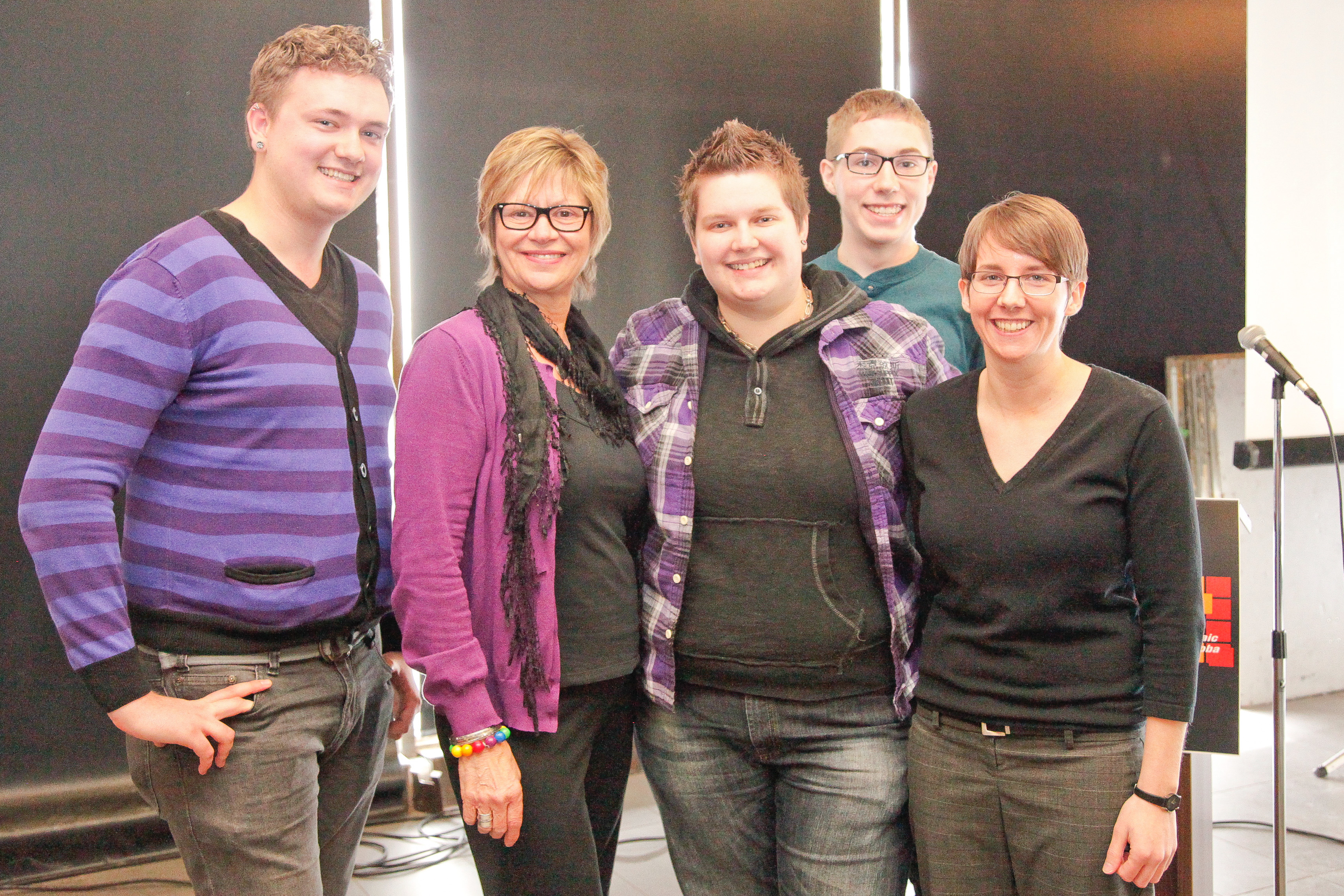Nancy Allan, former Manitoba Minister of Education and current MLA for St. Vital, spoke at the University of Manitoba last Wednesday as part of LGBTTQ* Awareness Week.
On Sept. 13 of last year, the provincial government ratified anti-bullying legislation with the passage of Bill 18 – The Public Schools Amendment Act (Safe and Inclusive Schools). Allan spearheaded the passage of the bill, and shared her experiences at the U of M in a keynote speech.
“It was a long struggle from start to finish. But it was something I felt really strongly about. If young people aren’t safe in school and don’t feel accepted, they cannot learn. It was something we had to address.”
The legislation was contentious to some because it required schools to accommodate students who wanted to start anti-bullying clubs, including the formation and promotion of gay-straight alliances.
Some Manitobans opposed the bill, arguing that these clubs would oppose their religious beliefs, and that requiring schools to allow such clubs would infringe on religious freedom.
Allan said the death of Amanda Todd sparked a conversation within Allan’s office. Todd committed suicide in October of 2012 after being bullied online and at school.
“We started to talk about it in my office, and I said to my staff, ‘I think we need to have a response to this provincially’ [ . . . ] we need to be there to support young people; regardless of who they are, we need to support them.”
Allan introduced the bill in the fall of 2012. Over the next year, a protracted battle developed between supporters and opponents of the legislation.
“It was an incredible journey [ . . . ] it galvanized the people who were against Bill 18, but more importantly, it galvanized the people who were for it. It was probably the most important human rights debate that we have had in this province since we passed a law to implement same-sex marriage.”
One of the most visible proponents to emerge in the debate was Evan Wiens, a high school student from Steinbach Regional Secondary School.
Wiens was barred from advertising a gay-straight alliance group he started at his school. The group has since been allowed to advertise their presence.
Danny Enright, a U of M student from Steinbach and a close friend of Wiens’, was present in the audience on Wednesday.
“I think this has had an impact at my old high school; the attitudes have gotten better. Some people would always tear down the posters, and I heard [that] at the beginning of this most recent school year, people actually got suspended temporarily when they were caught.”
Opposition stemmed strongly from the Southland Community Church in Steinbach, where the pastor, Ray Duerksen, called Bill 18 “the biggest challenge the Canadian church has ever faced.”
During the public hearings stage of the legislative process, MLAs heard from 260 speakers.
“In Manitoba, we’re the only jurisdiction in Canada that has a public process where every piece of legislation goes through a public hearing at the legislature, and anyone who wants to speak to a piece of legislation can come and speak,” said Allan.
“It was gruelling at times, but my caucus stood beside me. Even those who were religious stood beside me and supported me. They knew this needed to be done. They knew this was about human rights.”




Is it not an exaggeration to say, “If young people aren’t safe in school and don’t feel accepted, they cannot learn”?
What Nancy Allan refused to hear from the 180 oral presenters (out of 239) and the 48 written presentations (out of 50) was that Bill 18 has made it unsafe for students and teachers in Manitoba’s 550 schools to say that they believe human sex is designed only for husband and wife in marriage. That may well prove to be a violation of our Charter of Rights and Freedoms.
I find it hard to believe you’re unfamiliar with the content of Bill 18, but it’s been pointed out numerous times that Bill 18 protects religious groups as well. Minority religious viewpoints can absolutely be represented in schools, and those who fought for Bill 18 continue to fight for that right as well. This is all about preserving and advocating for the freedoms of speech and religion. As long as a group doesn’t exist for the purpose of alienating or attacking other students, they should be allowed to gather.
To get one thing straightened out, the PC’s didn’t oppose the bill because they don’t want to promote a safer school environment or that it would pose a threat to current clubs. They opposed it because of all the additional paper work that will now be given to teachers when they don’t have the time to do the paper work they have already. It’s also impossible to legislate kindness. That’s something that should be taught at home. A strong majority of teachers were opposed to Bill 18 because, although it has fantastic merit, it is impractical and isn’t a viable solution to the problem at hand. This doesn’t solve the problem. It’s just a band-aid that is being put on the larger problem at hand.